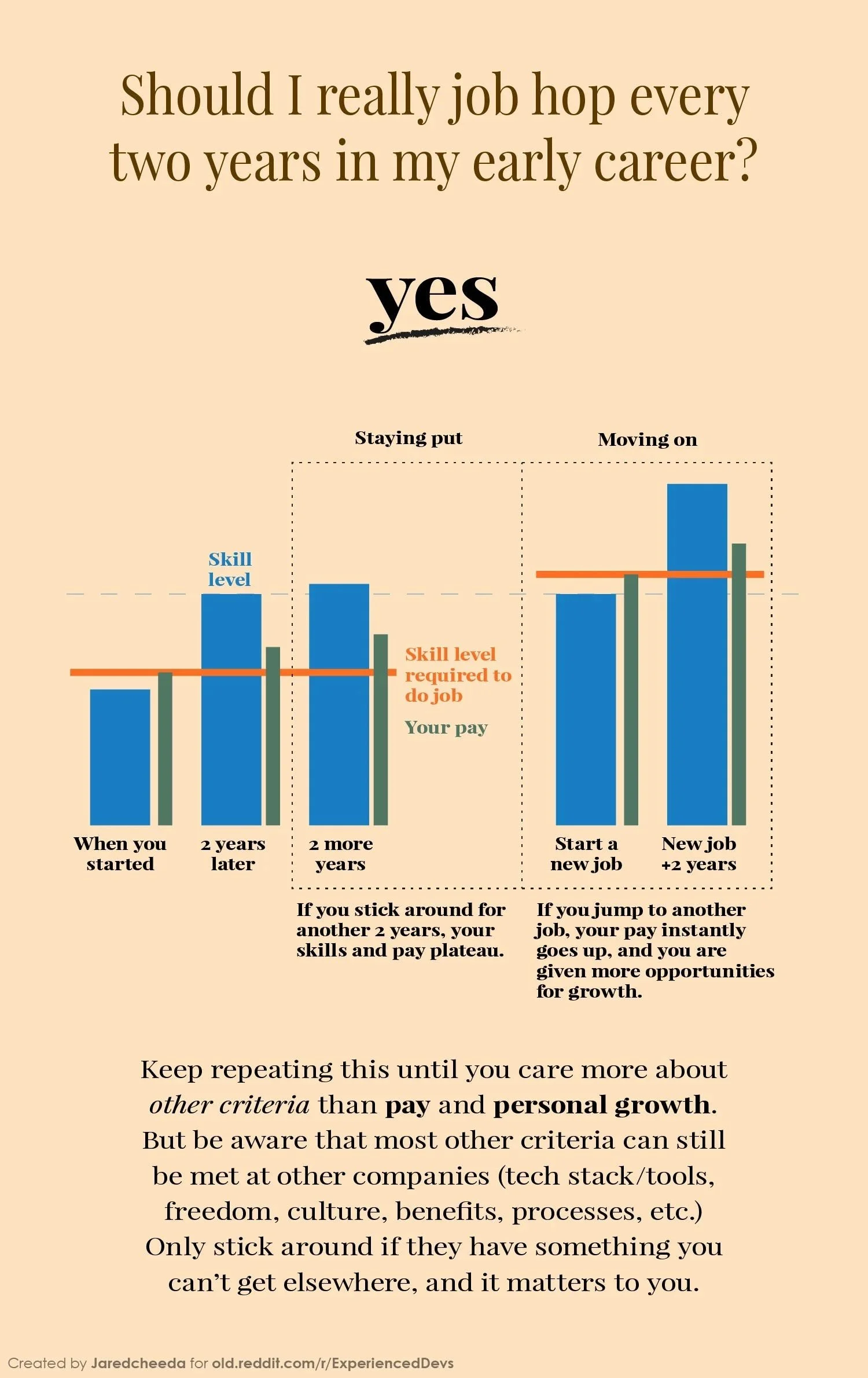Tech Industry Job-Hopping Disaster of 2024
Photo by Marvin Meyer on Unsplash
Change is the only constant in the world of software development.
Dynamism seems to have directly lead to high staff turnover and poor morale, reducing the profession to a revolving door of talent and negatively impacting the teamwork required for the creation of software.
This has only worsened in 2024.
The Paradox of Innovation and Instability
The tech industry is widely celebrated for innovation, and the potential of the industry to “change the world”.
At the same time, the industry struggles with its workforce. Developers' job-hop, which leaves unstable teams and an environment unsuited to innovation — and the lack of innovation itself is a reason developers give for job hopping and impacts the morale of those who stay.
The Race to the Bottom
Short tenures are driven by both employees and employers.
Developers seek rapid career advancement and pay hikes, while companies view their staff as expendable resources that must be maximized. The result is a nomadic culture that disrupts continuity and erodes the collective knowledge in companies.
Since employers know employees will not stay in position, they won’t invest in them. Since employees know they benefit the most by moving, they do so. The result is bad for everyone.
A staggering 45% of software developers have an average tenure of 1 to 2 years, with a whopping 69% having a tenure of less than 2 years. High turnover rates lead to increased recruitment and training costs, decreased productivity, and adverse effects on company culture ultimately affecting the bottom line.
Staffing gaps can cause burnout and poor morale in the remaining staff. It’s something I’ve experienced in my current company where 20% of the staff were laid off, leaving everyone demoralized. As people leave weekly the results of the developers are slipping, meaning everything is slowly and surely getting worse.
Look to the East
It doesn’t have to be this way. I can’t help but admire the cohesion and continuity seen in Nintendo’s teams.
Max Nichols of Bungie highlighted this, noting that four out of the five original developers of “Super Mario Bros.” worked on the new “Super Mario Bros. Wonder.” Nintendo’s 98.9% retention rate is a testament to its nurturing environment, which minimizes the time spent on knowledge transfer and maximizes the team’s ability to deliver high-quality, user-centric products.
Key Takeaways
It’s important to think about tech companies approach to staff and innovation.
Layoffs
Recognize that layoffs might save money in the short term, but losing valuable knowledge and experience may cost more in the longer term.
Values
Align staff with a clear purpose.
Customer focus
It is sometimes innovative to give the customer what they want.
Quality
Prioritize quality, even delaying projects to ensure they meet high standards.
Employee Satisfaction
The best companies have employees who recommend working at their company. Keep employees happy, and they will encourage more great employees to join.
Know What Innovation Actually Is
By listening to your customers and staff you can get some great ideas. Try it.
To address the high turnover rates, tech companies must reevaluate their hiring practices and organizational values. Building and maintaining cohesive teams should be a priority. Like Nintendo, companies should foster environments where teamwork and familiarity lead to responsible decision-making and accountability.
Conclusion
It’s time for the tech industry to reflect on its values. By fostering a loyal and interconnected workforce, companies can reduce turnover and elevate the quality and impact of their projects.
The unity and longevity of teams are crucial in a field driven by creativity and collaboration. Addressing these issues promptly can make the tech world, and possibly the world outside it, a better place for everyone.


